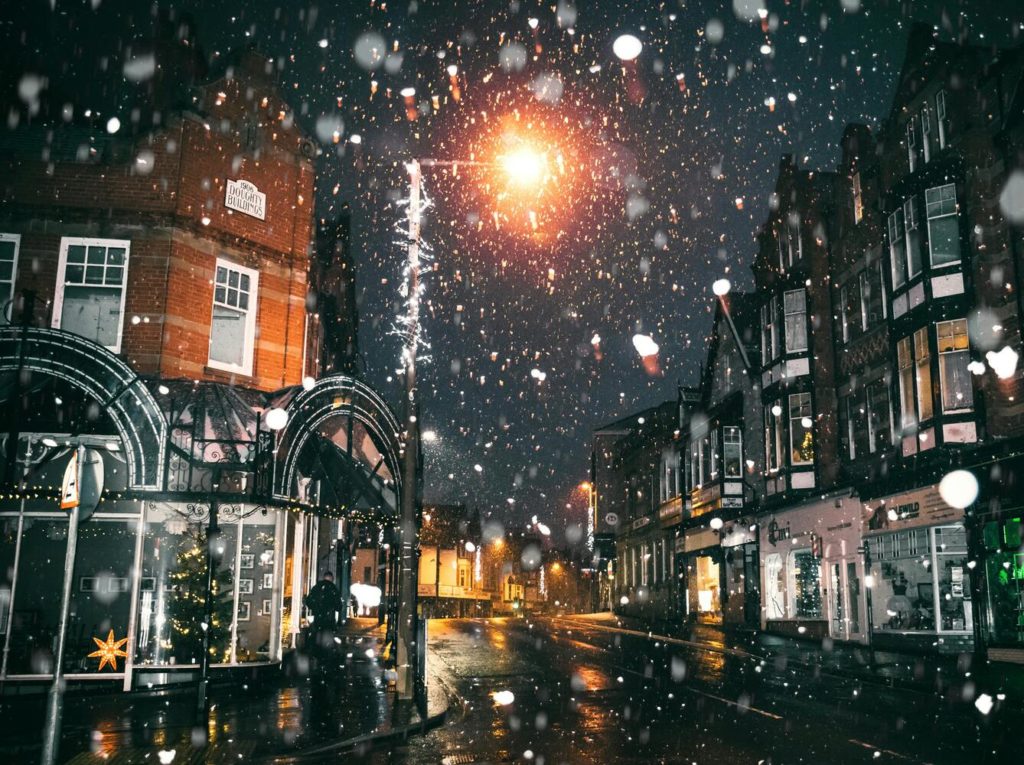English-speaking countries around the globe celebrate a wide array of holidays and festivals, each reflecting unique aspects of their history, culture, and values. From national days to religious observances, the holidays celebrated in these nations offer a window into the traditions that define them. In this article, we’ll explore some of the major holidays and festivals in the English-speaking world, highlighting their significance, regional variations, and the ways in which they bring people together in celebration.
Thanksgiving in the USA and Canada
Thanksgiving is one of the most important holidays in both the United States and Canada, though the origins, timing, and traditions vary between the two countries.
In the USA, Thanksgiving is celebrated on the fourth Thursday of November, and it traces its origins back to the early 17th century when Pilgrims and Native Americans came together for a harvest feast. Today, it is a national holiday centered around giving thanks for the year’s blessings, family gatherings, and enjoying a large meal that traditionally includes turkey, stuffing, mashed potatoes, cranberry sauce, and pumpkin pie. The holiday is also marked by parades, most famously the Macy’s Thanksgiving Day Parade in New York City, and American football games.
In Canada, Thanksgiving is celebrated on the second Monday of October, and while it also commemorates the harvest, it has different historical roots, including early European harvest festivals. The traditions are similar, with family gatherings, turkey dinners, and gratitude being central themes. However, the celebration is generally more low-key compared to the American version, and it’s not as heavily commercialized.
Guy Fawkes Night in the UK
Guy Fawkes Night, also known as Bonfire Night, is a uniquely British holiday that dates back to the early 1600s. It commemorates the Gunpowder Plot of 1605, when Guy Fawkes and a group of conspirators attempted to blow up the Houses of Parliament in London. Fawkes was caught and executed, and his failed plot is remembered on November 5th with bonfires, fireworks, and the burning of effigies of Guy Fawkes.
Guy Fawkes Night is celebrated throughout the United Kingdom with local variations, including community bonfires, firework displays, and fairs. In some places, the effigies (often called “guys”) are paraded through the streets before being set alight, accompanied by chants of “Remember, remember the fifth of November, gunpowder, treason, and plot.”
Over time, the holiday has shifted from its political origins to become a popular community celebration, though it remains a reminder of the tension between religious groups in British history. Today, it’s an occasion for friends and families to gather, enjoy the fireworks, and roast marshmallows by the fire.
Australia Day and ANZAC Day in Australia and New Zealand
Australia Day (January 26) and ANZAC Day (April 25) are two major public holidays in Australia and New Zealand, each with its own distinct focus and meaning.
Australia Day marks the anniversary of the arrival of the First Fleet in 1788 at Port Jackson, New South Wales, and the raising of the British flag. It’s a day for celebrating the nation’s diversity, history, and achievements, with events including parades, fireworks, barbecues, and concerts. However, it’s also a day of reflection and protest for many Indigenous Australians, who refer to it as Invasion Day or Survival Day, highlighting the painful legacy of colonization.
ANZAC Day, on the other hand, is a solemn day of remembrance for the soldiers of the Australian and New Zealand Army Corps (ANZAC) who fought in the Gallipoli Campaign during World War I, as well as all those who have served in military conflicts. Observances typically include dawn services, parades, and the laying of wreaths at war memorials. ANZAC Day holds deep emotional significance, symbolizing national pride, sacrifice, and the enduring bonds between Australia and New Zealand.
St. Patrick’s Day Celebrations in Ireland and Abroad
St. Patrick’s Day (March 17) is celebrated in honor of St. Patrick, the patron saint of Ireland, who is credited with bringing Christianity to the Irish people in the 5th century. The holiday, originally a religious feast day, has since evolved into a global celebration of Irish culture.
In Ireland, St. Patrick’s Day is marked with parades, festivals, and religious observances, including special masses. Major cities like Dublin host large-scale parades featuring traditional Irish music, dance, and vibrant floats. It’s a day for both solemn reflection and joyous celebration, where the Irish take pride in their history, culture, and heritage.
Outside of Ireland, St. Patrick’s Day is a major event in countries with large Irish diasporas, particularly in the United States, Canada, and Australia. Cities like New York, Boston, and Chicago host massive parades, and the holiday has become synonymous with wearing green, attending Irish pubs, and indulging in Irish-themed festivities. Even landmarks around the world, such as the Sydney Opera House and Niagara Falls, are illuminated in green for the occasion.
Unique Regional Festivals: Mardi Gras in New Orleans and the Edinburgh Fringe Festival
Beyond national holidays, the English-speaking world is home to several vibrant regional festivals, each offering a unique flavor of local culture and celebration.
In the United States, the city of New Orleans is famous for its Mardi Gras celebrations, which take place in the weeks leading up to Ash Wednesday. Mardi Gras, or “Fat Tuesday,” is a time of indulgence before the Christian season of Lent begins. The festival is renowned for its lively parades, elaborate floats, masked balls, and street parties. Mardi Gras in New Orleans reflects the city’s rich mix of French, Spanish, and African cultural influences, with revelers donning colorful costumes, throwing beads, and dancing to the sounds of jazz and brass bands.
In Scotland, the Edinburgh Fringe Festival is the world’s largest arts festival, held every August in the capital city of Edinburgh. Originally established as an alternative to the Edinburgh International Festival, the Fringe has grown into a massive celebration of the performing arts, featuring thousands of performances spanning comedy, theatre, music, and dance. The festival is open to all artists and is known for its experimental, cutting-edge shows, as well as more mainstream performances. For locals and international visitors alike, the Edinburgh Fringe is a cultural highlight, drawing performers and audiences from around the globe.
Elsa Says:
From the turkey-laden tables of Thanksgiving to the fiery skies of Guy Fawkes Night, the holidays and festivals of the English-speaking world offer a rich tapestry of traditions, history, and celebration. These events not only honor the past but also bring communities together in shared experiences of joy, remembrance, and pride. Whether it’s the solemn reflection of ANZAC Day or the wild revelry of Mardi Gras, each holiday and festival tells a story about the people and cultures that celebrate them, offering a window into what makes these nations unique.



